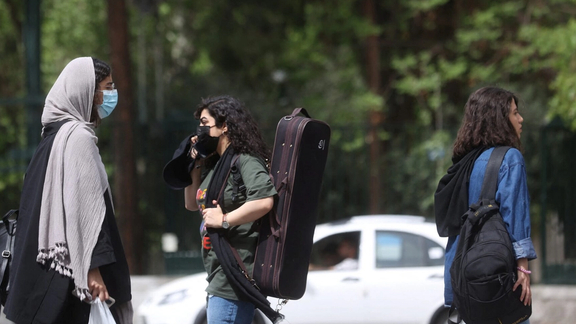The legislation, initially passed by Parliament in September last year, had been under review by the Guardian Council for months as Iran's leadership considered the public ramifications, particularly in light of growing defiance by women against the mandatory hijab, which has led to frequent violent confrontations with police.
Tahan Nazif, the Guardian Council’s spokesperson, said Saturday in a press conference that several members of Parliament had already informally communicated the bill's approval, The spokesperson did not clarify why the Council refrained from making a formal public statement.
The approval of the bill had been previously hinted at by key figures in Parliament. In September, Ahmad Rastineh, the spokesperson for the Parliament's Cultural Commission, and Mousa Ghazanfarabadi, a member of the Legal and Judicial Commission, both indicated that the bill, after extensive back-and-forth between Parliament and the Council, had finally been cleared by the Guardian Council.
Meanwhile, public concern over the bill persists, especially in light of broader national anxieties, including the possibility of conflict with Israel and economic instability. The Iranian outlet Rouydad24 criticized the timing of the legislation, arguing that, in the midst of pressing issues such as social cohesion and the widening gap between the government and the public, passing a law that would further alienate half of the population is highly questionable.
The bill, originally introduced by President Ebrahim Raisi's government in July 2023, imposes significant penalties for non-compliance with mandatory hijab regulations. First-time offenders would face a fine of 30 million rials (approximately $50), automatically deducted from their bank accounts. Repeat violations could lead to fines as high as 240 million rials ($400), a considerable burden in a country where monthly salaries average between $200 and $250.
Since the Woman, Life, Freedom movement in Iran, triggered by the death of Mahsa Amini while in police custody because of hijab in September 2022, hardliners have sought to reclaim control over women's dress codes. Despite widespread defiance of compulsory hijab laws, government efforts to reinforce these rules have intensified, leading to the shutdown of businesses and the impoundment of vehicles associated with hijab violations.
The Guardian Council’s approval of the bill places additional pressure on President Masoud Pezeshkian, who had campaigned against compulsory hijab enforcement and condemned the proposed legislation as the "Darkness Plan." He had pledged to end the morality police’s use of violence and stop hijab patrols. Nevertheless, law enforcement officials have continued to enforce the hijab mandate.
The President is legally required to sign and communicate the law for implementation within five days of receiving official notification from Parliament. It remains unclear whether Pezeshkian’s office has already received the legislation.








